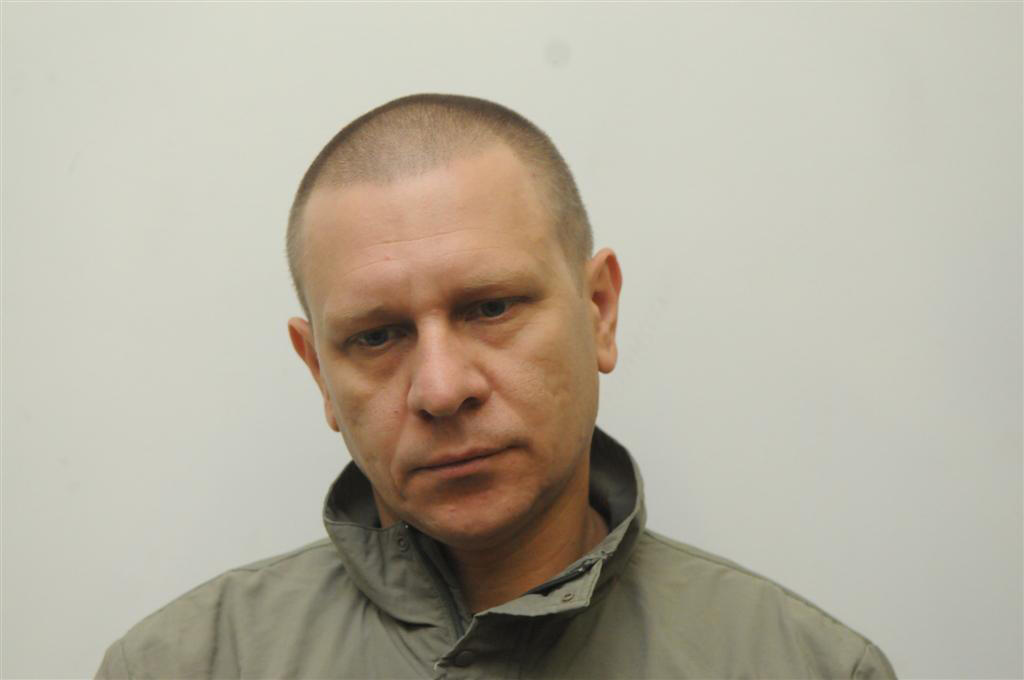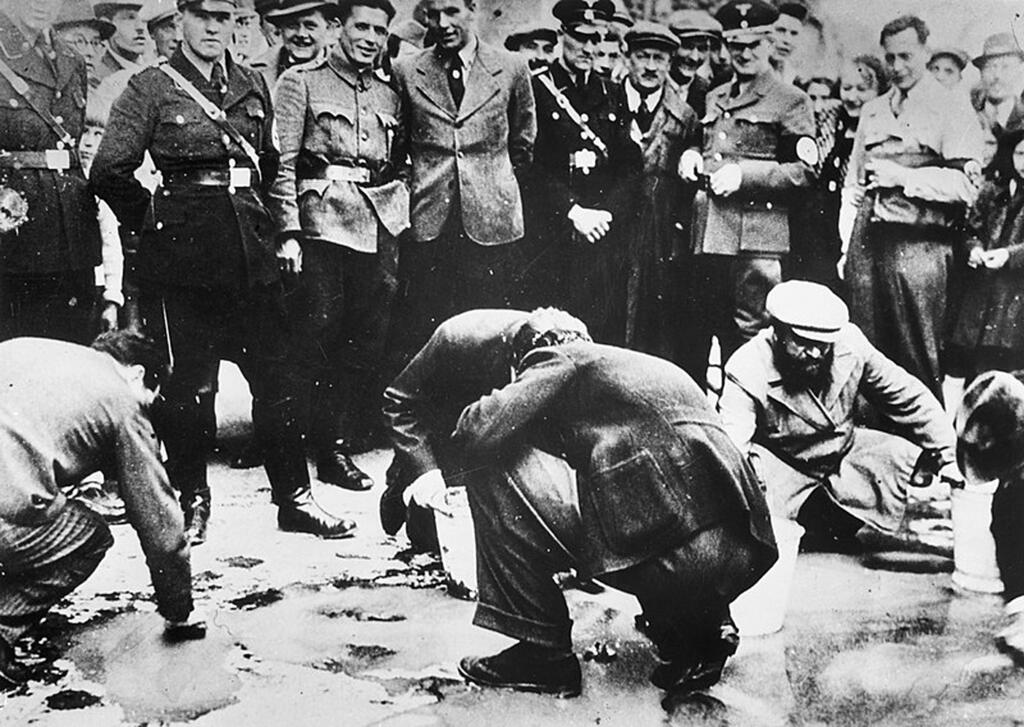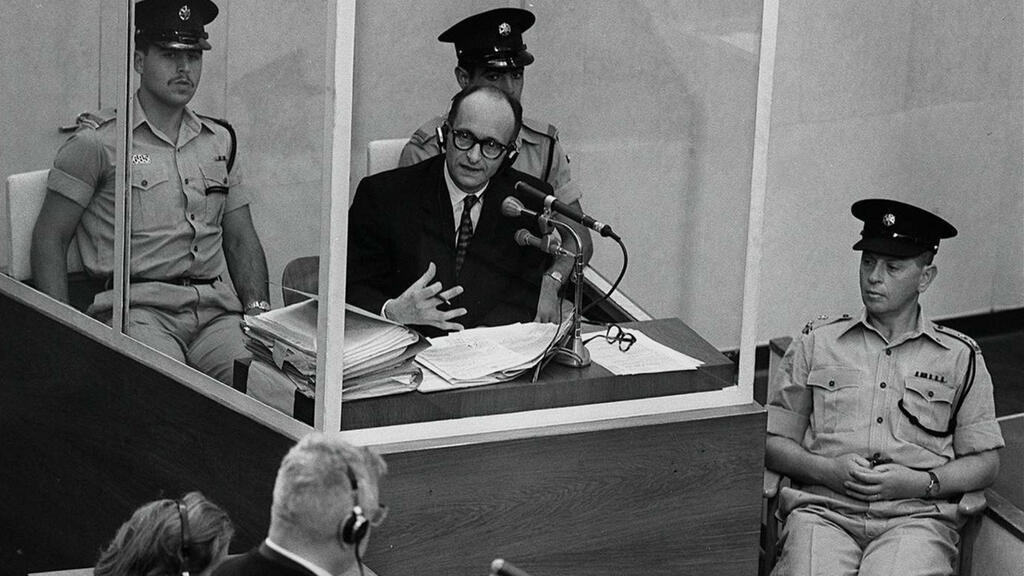Getting your Trinity Audio player ready...
In October 2009, Damien Karlik committed a heinous act by stabbing to death six members of the Oshrenko family spanning three generations, one by one. Even a four-month-old baby named Nathaniel was not spared and was murdered in his crib.
Other stories:
During the trial, Karlik's eyes ranged from expressionless to deeply sad, while the disturbing accounts of his sinister deeds sent shivers down the spine.
Uri Keinan, a criminal lawyer who now exclusively represents clients from the commercial and white-collar sectors, is hesitant to revisit the memory of his most gruesome client.
Keinan met the suspect, who was in custody at the time, for the first time during a routine meeting between lawyer and client. Despite the nature of the case, Keenan did not detect any indication that he should be cautious around the suspect.
Throughout the entire legal proceedings, the suspect was respectful towards Keenan and his staff.
He's never lost his cool?
"The entire saga had a significant impact on him. We could see signs of excitement and stress when his wife was arrested (who was later sentenced to 13 years in prison for manslaughter) and during her testimony.
"As for me, this case was emotionally challenging. Despite approaching the legal work with a defense attorney's professional detachment, I couldn't escape the impact of witnessing such a gruesome crime scene."
The murder of the Oshrenko family remains one of the most shocking criminal cases in Israeli history. Many viewed Karlik as the epitome of human evil and called for the death penalty, despite its non-existence in Israeli law for murder. During the reconstruction of his heinous actions, Karlik himself testified that "my humanity has left me, and that's it."
It begs the question - Can evil be considered a natural part of humanity resulting from abuse, neglect, or early exposure to wrongdoing? Is evil a complete antithesis to goodness, or is it a complex interplay of both within every individual?
Dr. Maayan Be'eri Nagar, a lecturer in neurocriminology at Ariel University and whose course focuses on understanding the neurological processes that underlie human behavior, believes that while defining evil may be a philosophical or theological question, there is no denying the existence of bad deeds and the people who commit them.
How is evil created?
"if we define evil as bad deeds, it involves a combination of various factors. These factors include innate characteristics such as brain structure, hormones, and sensitivity towards others.
"It also involves behavior patterns such as impulsiveness and aggression. Apart from genetics, environmental factors starting from the prenatal stage and continuing into adulthood also play a significant role."
How does Neurocriminology refer to those who are considered to be good people from good families who perpetrate evil acts?
"The availability of financial resources in a family does not guarantee that the parents will provide their child with the emotional support, care and affection they require.
"Studies indicate that in cases where the environment is not the primary cause, genetics and early experiences may have a more significant impact on our behavior and brain function.
"For instance, in situations where children are adopted into nurturing and loving families at a young age, but have already experienced trauma, the effects may still linger."
So some sort of damage has to take place before evil becomes apparent?
"People are not inherently bad. Those who do not have genetic or environmental factors that impede their behavior would have no motivation to harm others.
"Humans are social creatures and generally abide by a social contract to avoid harming others, and individuals who have committed serious acts do not necessarily see themselves as bad.
"Criminology characterizes absolute evil as psychopathy, which refers to an individual who lacks empathy and exploits others for their own benefit through negative intentions and actions.
Although it doesn't necessarily involve violent acts, psychopathy violates the social contract that people abide by. This type of behavior is linked to various factors, including brain structure and environmental influences.
"However, individuals who exhibit psychopathic tendencies make up a small percentage of the population."
"According to research, there are individuals who exhibit behavior that is considered "bad" compared to what is considered normal. These individuals often have brain deficits, particularly in areas related to fear, which makes it difficult to teach them to avoid harmful situations.
"These individuals have a reduced fear response, which could contribute to their tendency to engage in harmful behaviors.
"The concept of conscience can be viewed as a set of factors. For instance, fear may prevent one from engaging in prohibited behavior.
"Rather than actively considering the ethics of an action, a person may simply experience a sense of discomfort when tempted to perform an immoral act, whether it involves shoplifting, telling a lie, or some other form of transgression. This unpleasant feeling is often physical in nature.
"Neglect is a determinant factor that can significantly contribute to such patterns of behavior. When an infant expresses their distress and does not receive a response, they may learn that expressing their distress is unproductive. Consequently, they may cease feeling distress entirely.
"If they cannot experience the distress caused by injury, they will undoubtedly be unable to feel it towards others. This adaptive mechanism is critical for the child's survival, as without it, they may not be able to cope with the overwhelming distress.
"This syndrome is often identified in several serial killers, though it may not be present in all of them."
What about teens in the U.S. that commit mass shootings?
"Although not my area of expertise, based on my reading and exposure, I have observed that children or teenagers who are socially ostracized and withdrawn may experience a sense of detachment, meaninglessness, and low self-esteem.
"Despite reports of a supportive and inclusive family, a child who isolates themselves in their room and exhibits signs of depression may not be receiving the warmth and support they need.
"Furthermore, when the hormonal changes of puberty are added to the mix, the potential for committing harmful acts may increase."
The Nazis of the last century represent one of the most profound examples of absolute evil in human history. Their atrocities transformed unimaginable human suffering into an industrialized system.
Hannah Arendt, a writer and philosopher, referred to the war criminal Adolf Eichmann as the embodiment of "the banality of evil" - a phrase coined to describe the disconcerting contrast between the horrific nature of his actions and his unremarkable personality.
Arendt's book about Eichmann's trial popularized the term, which has since been used to describe similar cases of inexplicable cruelty.
There are individuals who recoil from the notion of ultimate evil, while there are others who commit their lives to it.
Professor Gideon Greif, a historian, not only undertook the responsibility of recording the atrocities of the Holocaust, but also dedicated a significant portion of his research to exploring one of its most horrific manifestations: the Sonderkommando.
These were groups of Jewish inmates who were tasked with managing the bodies of those murdered in the gas chambers.
"Thousands of testimonies recounting the Germans' cruelty towards Jews and other victims have been studied, revealing that the acts of evil and sadism were often carried out without necessity," he says.
"If the intention was to exterminate the Jewish people entirely, then why subject them to torture, humiliation, starvation, and prolonged suffering? Such actions seem entirely gratuitous, given that killing can be achieved in mere seconds."
Maybe they enjoyed it.
"It is plausible that some individuals might have derived pleasure from their acts of sadism, while others may have been coerced by social pressure. However, it would be unfair to label all Germans as inherently evil or sadistic.
"Nevertheless, the environment of the concentration and extermination camps seemed to have fostered a sense of competition to outdo one another in inflicting cruelty, at the expense of the helpless Jewish victims.
"Bottom line is Sadism doesn't make you happy, but it fills a void. It's artificial."
Instead of attributing such actions solely to social pressure, I find it difficult to believe that this was the only factor at play.
"As a historian, I can analyze situations and say that the Nazis did not limit themselves to mere murder, but infused it with malice, sadism, and relentless mental and physical abuse. Early on, there was a sense that the Jews were allowed to be treated in any way without fear of judgment."
Even today, we continue to hear about the horrors of war that are not directly related to combat, such as those in Ukraine.
"I can only reference the biblical quote that asserts the innate evil of man's heart from a young age. Such phenomena have existed throughout history, and evil is an inherent part of human society."
You don't think Eichmann was just following orders.
"Extensive documentation supports the claim that Eichmann was deeply committed to the extermination of Jews, and although he did not physically carry out the killings, he played a significant role in organizing and facilitating their destruction.
"He was well-informed of their final destination and made multiple visits to Auschwitz to ensure that the operation was running efficiently. His intentions were clear, as he sought to eliminate as many Jews as possible and viewed the deportation of Hungarian Jews to Auschwitz as the crowning achievement of his career.
"In fact, he even relocated his headquarters to Budapest in 1944 to oversee this operation, seeing it as his last chance to gain recognition and favor.
"He was a deeply dissatisfied and embittered individual who felt unappreciated despite his unwavering commitment to his duties. Furthermore, he never had the opportunity to meet Hitler, not even for a brief conversation, which infuriated him.
"Despite not holding a high-ranking position, he zealously implemented policies he did not create, free of hesitation or skepticism."
Has working with the darkest and most malevolent aspects of human nature affected you in any way? Has it made you dislike people more because of your profession?
"My involvement in studying the Holocaust does not alter my own identity or my perspective on the world. Reading numerous books on the subject does not diminish my interest or desire to document and understand it.
"In fact, my passion and dedication to discussing and explaining the Holocaust only grow stronger with time."
What does history tell us about human evil and our ability to alleviate ourselves from it?
"If one is resolute in their decision to choose the path of righteousness, nothing can thwart them. The power of one's decisions is absolute, as we have control over our own actions.
"Those who remain committed to kindness and resist the temptation of wickedness can certainly achieve this feat. It is entirely possible, though often difficult. The allure of evil can be alluring, which presents a tragic aspect of the human condition.
"Nonetheless, it is a problem that can be tackled. I am convinced that humankind holds sway over most things. Should one strive to make a positive impact, one can indeed make a lasting difference. The world's issues can be mended, not through vast amounts of funding, but by the resolute decision of every individual."
Prof. Greif is not wrong. Evil possesses an allure that we cannot help but be drawn to, despite our aversion towards it. It beckons to us, tempting us with its seductive power.
Even though society has grown weary of it, popular culture continues to perpetuate it. Whether it's King Joffrey from Game of Thrones, the Joker, or Tony Soprano, we are fascinated by those who stray from the path of righteousness.
In order to comprehend whether or not we ourselves possess an inherent inclination towards evil, we must first delve into the philosophical realm to discern its true nature, and perhaps examine it through the lenses of history and criminology.
Prof. Asa Kasher, the renowned philosopher who authored the IDF's ethical code and was awarded the Israel Prize, presents his personal interpretation of human evil as a formidable and all-encompassing force that must be combatted.
In his view, the fundamental element at the core of evil is the preservation of human dignity - specifically, the recognition of when something is deemed evil.
"When we examine individuals who commit heinous acts, we can identify their intention and behavior as a violation of the human dignity of others. These offenders are not minor offenders like those who park illegally, but rather murderers, rapists, and robbers who gravely undermine the dignity of their victims.
Furthermore, although we tend to see little children as pure and innocent, the reality is that they possess egoistic tendencies. As my grandchildren have shown me, the phrase "I want" is a constant in their vocabulary.
"Although I adore them deeply, I can see that they indulge themselves frequently, as is common among children.
"The Nazi regime's intention to annihilate the Jewish people exemplifies an unparalleled manifestation of the refusal to uphold human dignity. Additionally, there is a disturbing evil present in politics that continues to shock me.
"Although I am somewhat accustomed to the behaviors of politicians, each time they stoop lower in their disregard for the dignity of others, it leaves me appalled.
"How is the political opposition behaving? It appears as if their strategy is to insult members of the coalition as much as possible. Their propaganda machine is designed to damage human dignity, rather than promote a democratic regime change.
"These actions are not aligned with the principles of democratic change, which are based on convincing voters that there is a better alternative. Instead, the opposition seems to be focused on causing unrestrained harm to the coalition members.
"In my opinion, the Supreme Court of Israel plays a crucial role in the fight against evil, particularly since the Basic Law on Human Dignity and Freedom was established.
"This law is considered the most fundamental law in Israel, and the court's legal responsibility is to safeguard human dignity at all costs. Criticizing the court and its ethical foundation is, in my view, an act of evil."
Can there be a society free of evil?
"Education can successfully instill in children the value of respecting others and preserving human dignity. This can be achieved through the effective use of educational tools and methods to nurture in children an understanding of the importance of human dignity in their interactions with others.
"Voltaire was a French Enlightenment writer, historian, and philosopher famous for his wit, his criticism of Christianity, especially the Catholic Church, and his advocacy of freedom of religion, freedom of speech, and separation of church and state. He created a parody in which everyone is benevolent.
"In reality, though. That's not possible. There will always be evil."







